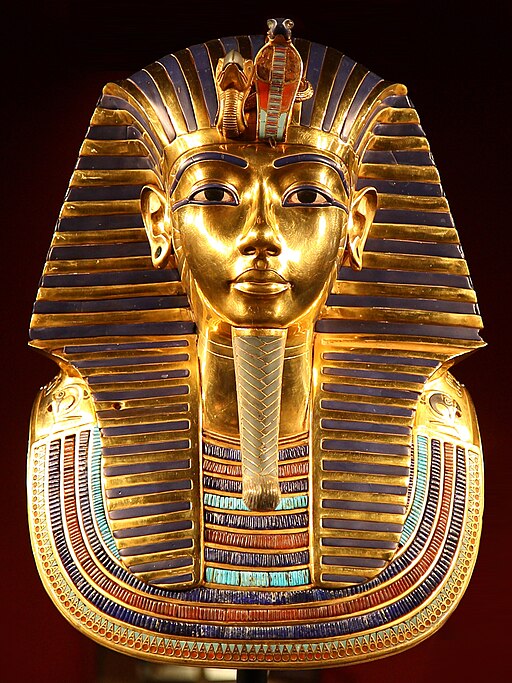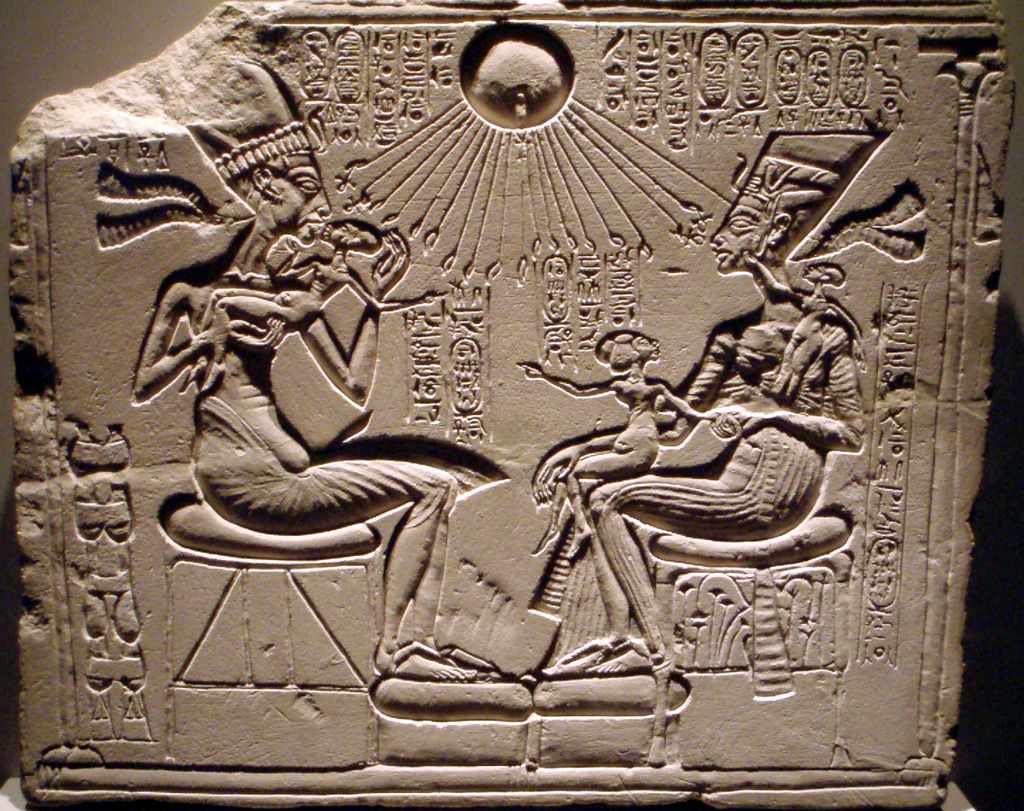
“King Cophetua and the Beggar Maid” by Edward Burne-Jones illustrates the story which tells the legend of King Cophetua, who fell in love at first sight with the beggar Penelophon.
A 16th-century ballad tells the story of an African king, Cophetua, who was renowned for his lack of interest in women.
One day while looking out a palace window, he witnesses a young beggar, Penelophon. Struck by love at first sight, Cophetua decides that he wanted the beggar girl as his wife.
King Cophetua rushed out into the street, he scatters coins for the beggars to gather, and when Penelophon comes forward, he asks her to be his wife. S
he agrees and becomes queen, and soon loses all trace of her former poverty and beggar life. The couple thrives together and becomes much loved by their people.
When they died, they were buried in the same tomb. At the time, the story became widely referenced and became a byword for “Love at first sight.”
Shakespeare mentions the ballad by title in several plays. It is referenced or alluded in Love’s Labor’s Lost, A Midsummer Night’s Dream, Romeo and Juliet, Richard II, and Henry IV, all written in the 1590s.
The tale was familiar to Burne-Jones through the sixteen-line poem The Beggar Maid by Alfred, Lord Tennyson.
Love at First Sight
Love, at first sight, has been explored by many cultures in various forms of literature, poetry, film, and art. Biblical and literary examples include:
- Bible Commentaries describe the account of Isaac’s first view of Rebekah (Genesis) as love at first sight
- Similarly for Jacob’s first sight of Rachel
- For Dante Alighieri, he fell in love with Beatrice Portinari at an early age. Beatrice appears as a guide in Alighieri’s “Divine Comedy.”
- In “Romeo and Juliet,” Romeo falls in love with Juliet when he first sees her.
- In “Sense and Sensibility,” Brandon was captivated by Marianne’s voice and fell in love with Marianne at first sight
- In “Les Misérables,” Marius and Cosette fall in love after glancing into each other’s eyes.
- In “The Little Mermaid” by Hans Christian Andersen, the mermaid falls in love with a human prince
In films, there are multiple examples, such as in “The Godfather” where Michael gets “hit by the thunderbolt” when he first sees Apollonia.
The Beggar Maid by Alfred Lord Tennyson
“She was more fair than words can say:
Bare-footed came the beggar maid
Before the king Cophetua.
In robe and crown the king stept down,
To meet and greet her on her way;
“It is no wonder,” said the lords,
“She is more beautiful than day.”
Edward Burne-Jones
Sir Edward Coley Burne-Jones (1833 – 1898) was an English artist and designer. He was associated with the later phase of the Pre-Raphaelite movement.
Burne-Jones worked closely with William Morris on a wide range of decorative arts as a founding partner in Morris, Marshall, Faulkner & Co. Burne-Jones and was closely involved in the rejuvenation of the tradition of stained glass art in Britain.
Burne-Jones’s early paintings show the considerable inspiration of Dante Gabriel Rossetti, but by the 1860s, Burne-Jones was discovering his artistic style.
In 1877, he exhibited eight oil paintings at the Grosvenor Gallery, a new rival to the Royal Academy. This opportunity allowed him to be heralded as a star of the new Aesthetic Movement.
Burne-Jones also worked in a variety of crafts, including designing ceramic tiles, jewelry, tapestries, and mosaics.
Pre-Raphaelites
The Pre-Raphaelites was a group of English painters, poets, and art critics, founded in 1848.
The group intended to reform art by rejecting what it considered the mechanistic approach first adopted by the artists who succeeded Raphael and Michelangelo, hence the name “Pre-Raphaelite.”
The Pre-Raphaelite Brotherhood sought a return to the abundant detail, intense colors, and complex compositions of Pre-Raphaelite Italian art.
The Pre-Raphaelites focused on painting subjects from modern life, and literature often used historical costumes for accuracy.
They painted directly from nature itself, as accurately as possible, and with intense attention to detail.
The Pre-Raphaelites defined themselves as a reform movement, created a distinct name for their art, and published a periodical to promote their ideas.
King Cophetua and the Beggar Maid
- Title: King Cophetua and the Beggar Maid
- Artist: Edward Burne-Jones
- Date: 1884
- Medium: oil on canvas
- Style: Pre-Raphaelite
- Dimensions: Height: 293.4 cm (115.5 ″); Width: 135.9 cm (53.5 ″)
- Museum: Tate Britain
Edward Burne-Jones
- Name: Edward Burne-Jones
- Born: 1833, Birmingham, England
- Died: 1898 (aged 64), London, England
- Nationality: English
- Movement: Pre-Raphaelite Brotherhood,
- Notable works:
- The Star of Bethlehem
- King Cophetua and the Beggar Maid
“King Cophetua and the Beggar Maid” by Edward Burne-Jones
The Beggar Maid – Alfred Lord Tennyson
A Virtual Tour of Pre-Raphaelite Artists
John Everett Millais
- Isabella
- Christ in the House of His Parents
- The Martyr of Solway
- Ophelia
- Blow Blow Thou Wind
- The Black Brunswicker
- A Dream of the Past: Sir Isumbras at the Ford
William Holman Hunt
- Our English Coasts
- Isabella and the Pot of Basil
- Self-portrait William Holman Hunt
- Sheltering a Christian Missionary from the Persecution of the Druids
Dante Gabriel Rossetti
- Lady Lilith
- Dante’s Dream
- Dante Gabriel Rossetti – Self Portrait
- The Beloved
- Bocca Baciata
- Paolo and Francesca da Rimini
- The Day Dream
John William Waterhouse
- The Lady of Shalott
- The Favorites of the Emperor Honorius
- Circe Invidiosa
- Diogenes
- I Am Half-Sick of Shadows, Said the Lady of Shalott
- Hylas and the Nymphs
- Echo and Narcissus
- Ulysses and the Sirens
- Consulting the Oracle
- A Tale from the Decameron
- Circe Offering the Cup to Ulysses
- Saint Eulalia
- Fair Rosamund
Marie Spartali Stillman
- Love’s Messenger
Ford Madox Brown
- Romeo and Juliet
- The Last of England
Henry Holiday
- Dante and Beatrice
Edward Burne-Jones
- The Star of Bethlehem
- King Cophetua and the Beggar Maid
Frederick Sandys
- Queen Eleanor
- Morgan-le-Fay
- Mary Magdalene
Frank Dicksee
- The Funeral of a Viking
John Collier
- Lady Godiva
William Dyce
- Francesca da Rimini
King Cophetua and the Beggar Maid
Quotes about the Pre-Raphaelite Movement~~~
“Better by far, you should forget and smile than that you should remember and be sad.”
– Christina Rossetti
~~~
“The past is not dead; it is living in us, and will be alive in the future which we are now helping to make.”
– William Morris
~~~
“The artist has done nothing till he has concealed himself — the art is imperfect which is visible-the feelings are but feebly touched if they permit us to reason on the methods of their excitement.”
– John Ruskin
~~~
“When I am dead, my dearest,
Sing no sad songs for me.”
– Christina Rossetti
~~~
“All great art is the work of the whole living creature, body and soul, and chiefly of the soul.”
– John Ruskin
~~~
“The greatest foe to art is luxury; art cannot live in its atmosphere.”
– William Morris
~~~
“Art is not a study of positive reality; it is the seeking for ideal truth.”
– John Ruskin
~~~
Photo Credit: Edward Burne-Jones [Public domain]
Popular this Week








 Sponsor your Favorite Page
Sponsor your Favorite Page SEARCH Search for: Search Follow UsJoin – The JOM Membership Program
Sponsor a Masterpiece with YOUR NAME CHOICE for $5
Share this:
- Tweet
